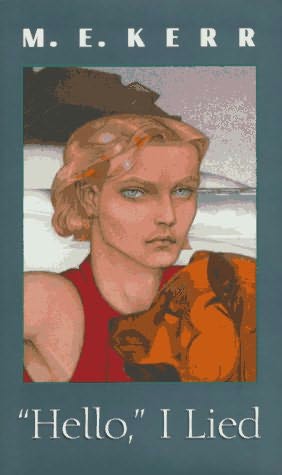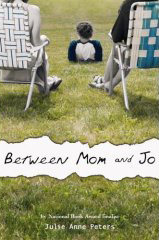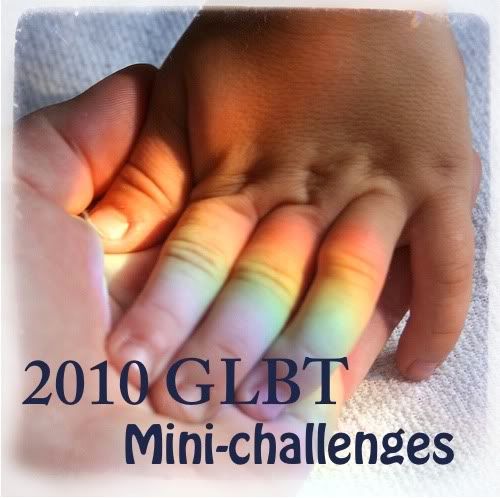*****
Greetings, book comrades! Gather round and settle in: grab some refreshment and a comfy seat. I have a story to share with you.
Totally relevant: I'm a cisgendered bisexual woman from the South.
I write stories. Most of the time they are fanfiction and we're all pals so I will be honest: I write fanfiction because I love speculative fiction sources that have really intense friendships. Lots of us love those, except heterosexual folks call them "romances". I love these really intense friendships because they won't become explicit romances. It's yet another chapter in Mainstream Culture Loves the Binary.
I "discovered" slash (male/male or female/female relationships for the purposes of this post) when I was 16. I had, of course, discovered it and daydreamed it and written it before, but I didn't know what it was called besides wrong! It wasn't in any published material that I could find — clearly a statement. That's when I started reading slash fanfiction on the same internet I am now posting this essay on. Here's a fun fact: I was ashamed of reading it, shamed to the bone, shamed to even speak aloud this new hobby. You could say my experience with slash mirrored my experience with my own sexuality. You would not be wrong in making that connection.
Here was everything I wanted from the sources I loved that the sources couldn't, and maybe wouldn't give me. There were hundreds of people writing it (later, I would learn, an entire subculture made up of thousands), but it was wrong, wasn't it? Mainstream culture said so and talk about a grab bag of emotional bemusement; I was 150% deviant for reading about Harry and Draco making out and boy, if I mentioned it out loud it was as if I had set the entire Harry Potter series on fire and also spit on it, because how could I think Harry Potter liked gentlemen. Imagine that, for one moment, please: that when heterosexual people can form a fandom about Team Sparkle and Team Fur and it's normal, but when people like me get fannish and transformative, explore texts from different angles to place people like us and relationships we want to see in them, we're just wrong, and not wrong in the "it's not canon" sense: morally wrong. So wrong, we don't even deserve to touch the source itself.
Cue rending of fabrics and long nights in front of my computer, confused but unable to stop. I read fanfiction and started to write fanfiction, for all these sources I loved where these really intense relationships were never going to become explicit in the text and I finally understood why. What's a confused teenager to do? Accept the source and put away the shameful toy? That's like telling us to shut off our minds.
That's Gay. No, Really.
Homoerotic subtext. I've made a cozy internet home on the basis that it will continue to happen. It's the flavor of the day, a sly nod that yeah, creators know we're there but they can't always acknowledge it because it hurts their bottom line. It's happening in sources that exist right now. As Aja points out in her post, i know you care for him as much as i do.:
We don't have gay main characters. Oh, we get them as sidekicks. ... But we don't get nearly enough gay heroes. We don't get nearly enough stories like Malinda Lo's Ash, where the real story is about how the heroine defeats a curse, and — oh, yeah, just happens to fall in love with a woman instead of a man. In fact, the reason Ash was so acclaimed when it debuted last year was because it was the exceptional exception to every rule. And all those rules basically boil down to: WE CAN'T HAVE MAINSTREAM STORIES ABOUT GAY PEOPLE.
...
But I want more. I hate that Guy Ritchie just slammed down that much ballsy homoeroticism in Sherlock Holmes, and yet the first time I mention it in casual conversation, someone will tell me that I'm crazy. Because why shouldn't I be crazy? Why shouldn't I be reading too much into things? As long as homosexuality exists only on the periphery of mainstream stories, and is only presented in "acceptable" overt ways, it will continue to reinforce the celluloid closet. It will continue to reinforce among the ignorant the idea that homosexuality isn't something that applies to them or what/who they love.
Her whole post is excellent. I highly recommend it.
We are living in the future!
These days I can go outside the main text for stories that have the type of relationship dynamics I want written by fans like me who want the same thing and I'm not shackled to a vein of literature that's rarely going to yield gold. The teen I was couldn't do that because before the internet there were only books and the books around me didn't reflect my feelings at all. There was no way Jessica Wakefield was going to suddenly decide to make out with the ladies — unless I wrote it myself. There was no way I would ever convince my sophomore English teacher that there was some hardcore homoerotic shenanigans between Gene and Finny in A Separate Peace. YA literature, literature in general, failed me, through no fault of its own — our voices were rarely considered, and when they were, it was a very long way from Rich Publishing Company to Podunk, Arkansas, Population: Homophobic.
This is what I want to share with this tl;dr post: the paradigm shift of then and now, aided by changing times and internet power — the power every book blogger now has. YA literature isn't failing teens now. No, in fact, I look at what YA literature is offering LGBT teens and I ache for my teenage self a little, even though I wouldn't give up my transformative, slashy works and community for anything. All these narratives, reaching out to teens and even adults and going, "look, here we are!". It's a little like living through those years is being validated, one YA book at a time, with characters that reflect my teenage self back at me and say, "you made it!". It's on shelves, it's being published, it's evolving as LGBT writers fill the canon with their stories. The stories pour out, they're coming, faster and faster, and getting better and better. We live in, if not perfect times, positive, hopeful times. When I compare now to then I marvel; we are lucky, so lucky, and we will only get more so.
We can have gay heroes now in literature, even if we have to be patient and watch twenty heterosexual romances pass us by — we have not yet reached the tipping point. We have pounded the metaphorical pavement of the years to reach a place where a LGBT author can be on the bestseller list, where a LGBT book can be faced out on shelves, even if we're not there yet in other types of media. If we want, we can take off the slash goggles and just have text — not subtext, not winks and nudges from creators, but honest LGBT relationships. We can live in our imaginations, but now it is no longer our only option.
It can only get better from here by LGBT lit being embraced by everyone, not just LGBT folks and allies. We've been reading heterosexual texts for years because we pine for stories, stories, always more stories. We've been asked to identify with heterosexual characters, invest ourselves in their stories, look past the fact that we were never represented and when we were it was often tragic or played for laughs. What I want is a future in which cisgendered heterosexual people can do that for us. The stories don't have to be romance. They just need to be stories that feature people like us: westerns, romances, SF/F, realistic fiction, religious fiction. To reach that, everyone has to be able to look at the stories and see, instead of a binary divide, just people — people who love in ways that do not conform to the cisgendered, heterosexual norm.
I believe in the day where LGBT characters in popular media are the norm and not tokens, characterized vividly and as thoroughly as their heterosexual counterparts. I believe in the day that these types of representations exist outside the culture of transformative works as well as inside it. I believe in that day. I believe in us.
It's an adventure and the door is wide open.
I could recommend texts here and I thought about doing so — but this isn't meant to be a recommendation post. It's a call to expand horizons and look beyond our own experiences into something wider. It's a call for more education for people whose perspective is so radically different that they can't imagine how anything in a LGBT character's life could apply to theirs. It's about reaching out to those stories and narratives. it's about empathy, it's about learning to value and learn from all human experience, not just one that reflects back what we already know and understand about the world. It's above love.
In case you do want reccommendations, well, there are three places I value above all others: Lee Wind, who has been blogging and promoting LGBT books for years as well as posting on topics relevant to YA experiences. His blog is invaluable, he's one of our greatest treasures for the work he is doing. He should be in everyone's reader: I'm Here. I'm Queer. What the Hell do I read?
QueerYA posts reviews on so many interesting titles. The archives are rich and full of guidance.
Lambda Literary Awards, which not only covers YA in their lists, but has their finger on the pulse of tons of LGBT literature.




















